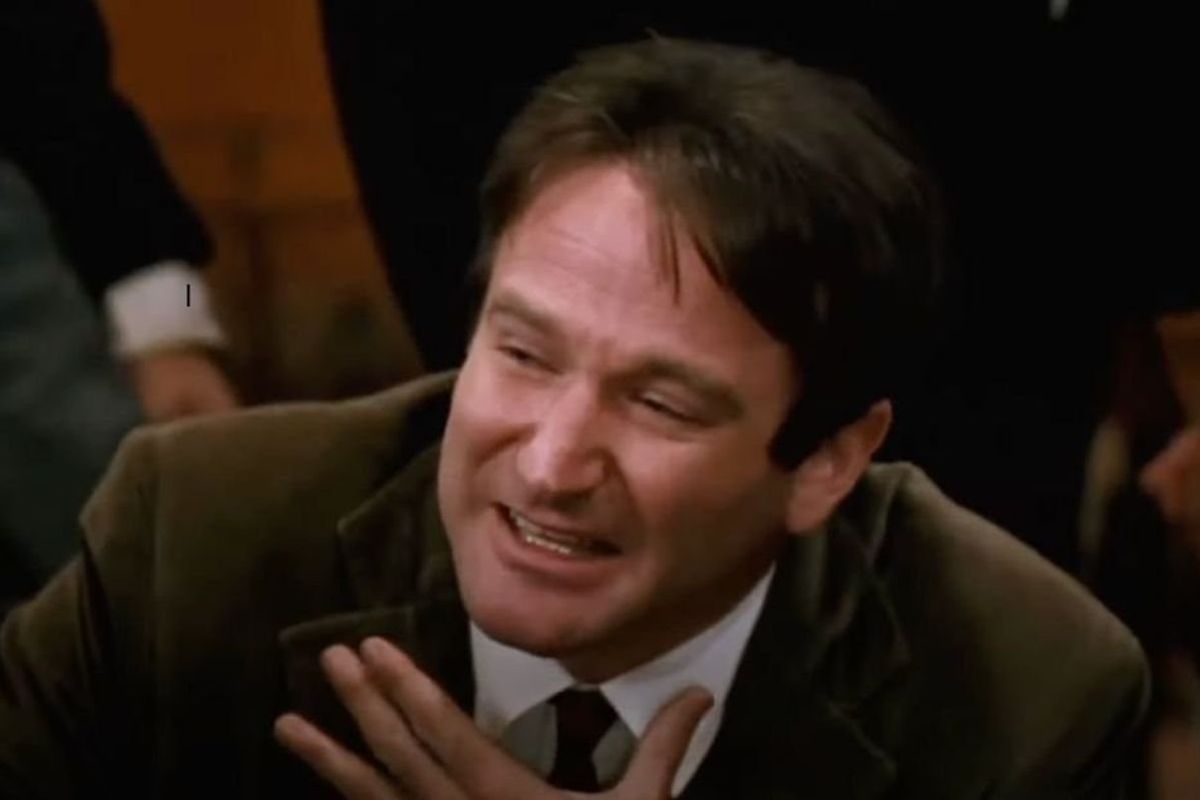Episcopal priest beautifully explains patriotism vs. nationalism and what sets them apart
One is love, the other idolatry.

What's the difference between patriotism and nationalism?
Patriotism can feel like a loaded term sometimes, as the meaning can range in people's minds from a basic love of country to a fierce loyalty one is willing to die for. What constitutes "country" can also impact how we perceive of patriotism, as there's a difference between the land, the people, the ideals, and the current government.
And then there's nationalism, which may sound like the same thing but isn't. So what's the difference? Episcopal priest Joseph Yoo shared his thoughts on what separates patriotism from nationalism, and people are appreciating having the key differences laid out so clearly.
@joseph.yoo Nationalism vs. Patriotism #yourEpiscoPal #YourKoreanFather #nationalism #patriotism #LanguageLearning
"Patriotism is love," Yoo begins. "It's gratitude. It's saying, 'I care about my country enough to tell the truth about it, to celebrate what's good and work to fix what's broken."
"Nationalism, that's idolatry," he continues. "It says my nation is the nation above critique, above others, God's favorite. And once you slap God's seal of approval on your own flag, congratulations, you've just made your country a 'golden calf.'"
He explained the patriotism results in activism like that of John Lewis crossing the Edmund Pettus Bridge to demand that the country live up to its professed ideals. Nationalism results in tragedies like the January 6th invasion of the Capitol, where Confederate flags and crosses were seen in the same mob.
"Patriotism says, 'I love my family enough to admit when we've messed up, and I will help us grow," Yoo says." Nationalism says, 'My family is perfect, everyone else is trash, and if you disagree you are out."
"One is honest love. The other is toxic possession," he says. "One builds. One bullies."
Yoo concluded with a biblical point: "Jesus never called us to worship a flag, only to love our neighbor."
It's important to differentiate between patriotism and nationalism because the latter has become a bit of a lightning rod in the political discourse. Some use it as a pejorative term, while others have embraced it as something totally acceptable or even positive. When the definitions are muddied, it causes confusion.

Of course, Yoo is not the sole authority on what these words mean, but his thoughts are aligned with what the neutral arbiters of definitions say they mean.
Dictionary.com has an entire page discussing the terms, defining patriotism as "devoted love, support, and defense of one’s country; national loyalty,” and nationalism as "the policy or doctrine of asserting the interests of one’s own nation viewed as separate from the interests of other nations or the common interests of all nations," ultimately leading to how the two words are used:
"Patriotism generally has a positive connotation. It’s used for various positive sentiments, attitudes, and actions involving loving one’s country and serving the great good of all its people.
Nationalism generally has a negative connotation. It’s used for political ideologies and movements that a more extreme and exclusionary love of one’s country—at the expense of foreigners, immigrants, and even people in a country who aren’t believed to belong in some way, often racial and religious grounds."

Britannica also has a whole page about the two words, with this basic synopsis of the differences:
"Patriotism is a feeling of attachment and commitment to a country, nation, or political community, and its conception has roots tracing back to Greek and Roman antiquity. It is associated with the love of law and common liberty, the search for the common good, and the duty to behave justly toward one’s country. Nationalism, on the other hand, is a more modern ideology that emerged in the 18th century, focusing on the individual’s loyalty and devotion to the nation-state, often surpassing other individual or group interests."
And then there are some famous takes on patriotism:
“I love America more than any other country in the world and, exactly for this reason, I insist on the right to criticize her perpetually.”
― James Baldwin
“Patriotism is supporting your country all the time and your government when it deserves it.”
― Mark Twain

“Patriotism means to stand by the country. It does not mean to stand by the president or any other public official, save exactly to the degree in which he himself stands by the country. It is patriotic to support him insofar as he efficiently serves the country. It is unpatriotic not to oppose him to the exact extent that by inefficiency or otherwise he fails in his duty to stand by the country. In either event, it is unpatriotic not to tell the truth, whether about the president or anyone else.”
― Theodore Roosevelt
“The difference between patriotism and nationalism is that the patriot is proud of his country for what it does, and the nationalist is proud of his country no matter what it does; the first attitude creates a feeling of responsibility, but the second a feeling of blind arrogance that leads to war.”
― Sydney J. Harris
There's nothing wrong with loving your country, but anything taken to excess and exclusion isn't healthy. Nationalism is excessive and exclusive in its very nature, and while patriotism can be weaponized, when kept in check it's what keeps people striving to make their homelands the best that they can be for everyone who lives there.
This article originally appeared last year



 A woman reading a book.via
A woman reading a book.via A woman tending to her garden.via
A woman tending to her garden.via
 A person on Threads makes a typo.Photo credit: Threads/@maureenmzobe
A person on Threads makes a typo.Photo credit: Threads/@maureenmzobe
 Individual impact isn't as inspiring to Gen Z as it was to
Individual impact isn't as inspiring to Gen Z as it was to  Gen Z is much more black and white about behaviors than previous generations.
Gen Z is much more black and white about behaviors than previous generations. 

 Young man holds up his hand to show five.
Young man holds up his hand to show five. Two women having a conversation at a coffee shop.
Two women having a conversation at a coffee shop.  Two women talking as the leave a yoga class
Two women talking as the leave a yoga class